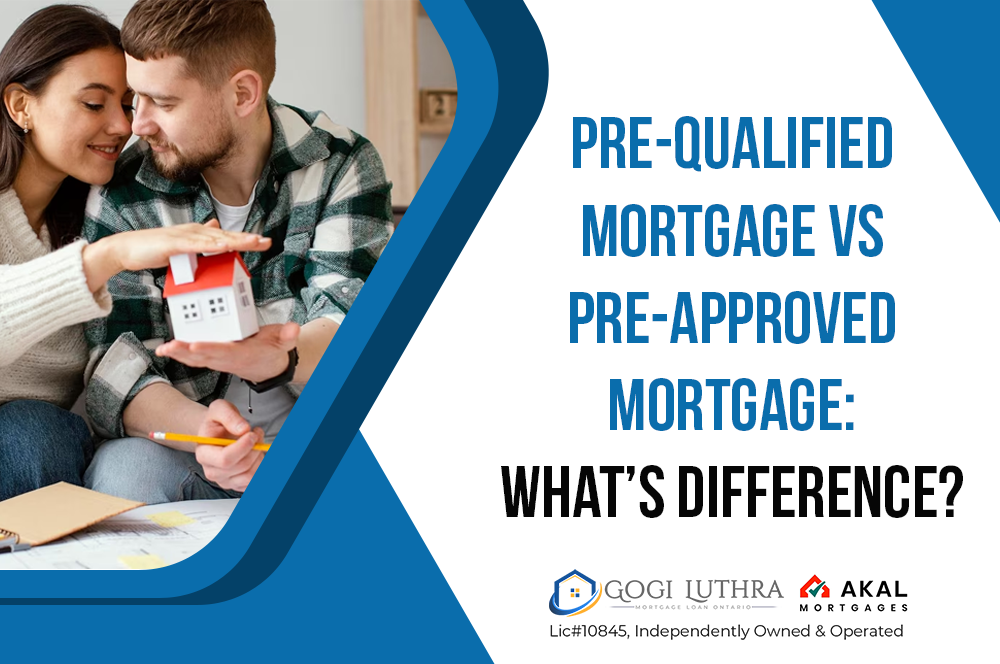If you’re in the market for a new home, you may have come across the terms “pre-qualified” and “pre-approved” mortgages. While these terms are often used interchangeably, they have significant differences that could affect your home-buying process.
In this blog post, We provide information about the difference between pre-qualification Mortgage and pre-approval mortgage and the role your mortgage broker can play in the process.
Are pre-qualifications and pre-approvals the same thing?
A pre-approval for a mortgage is a more detailed evaluation of your creditworthiness and ability to obtain a mortgage compared to a pre-qualification. To apply for pre-approval, you must complete a mortgage application and provide supporting documentation. Once approved, the lender will provide you with a pre-approval letter that outlines the amount of mortgage you are eligible for.
This letter strongly indicates to real estate agents and sellers that you are a serious buyer and have the financial ability to purchase a home. Pre-approval can give you a significant advantage when shopping for a home and making offers. However, pre-approval is not a mortgage loan guarantee, as the lender will still need to verify the property’s value and review any additional documentation before finalizing the loan.
How Does Pre-qualified Mortgage Work?
A pre-qualified mortgage is a preliminary assessment of your ability to obtain a mortgage loan based on the basic information you provide to a lender. To get pre-qualified, you will typically need to answer a few questions about your income, debts, and assets.
Based on this information, the lender will provide you with an estimate of how much you can borrow. However, pre-qualification is not a guarantee of a mortgage loan, as it is only a preliminary assessment.
While pre-qualification can be a useful first step in the home-buying process, it is important to note that you will still need to complete a full mortgage application and provide supporting documentation before the lender can make a final decision on your loan application.
Which Option Is Better For My Credit Score?
Neither pre-qualification or pre-approval has a significant impact on your credit score. When you apply for either option, the lender may perform a soft credit inquiry, which does not affect your credit score.
However, if you apply for multiple pre-approvals within a short period, it may have a small negative impact on your credit score as multiple hard inquiries may be performed. Therefore, it is recommended that you limit your pre-approval applications to one or two lenders to avoid a negative impact on your credit score.
Both options can be helpful in the home-buying process and should be fine with your credit score if used responsibly.
Bottom-line
In the world of home buying, two terms that are often used interchangeably are pre-qualified and pre-approved. Pre-qualification is an initial step where a lender evaluates your financial information to give you an idea of how much you may be able to borrow. Pre-approval, on the other hand, involves a more detailed evaluation of your financial information and creditworthiness, resulting in a conditional commitment from the lender to provide financing.
It is important to understand the difference between pre-qualification and pre-approval to determine your home budget and make yourself a stronger candidate in a competitive real estate market. If you’re looking to buy a home, reach out to Mortgage Loan Ontario, a mortgage expert who can guide you through the pre-approval process and help you secure financing.

